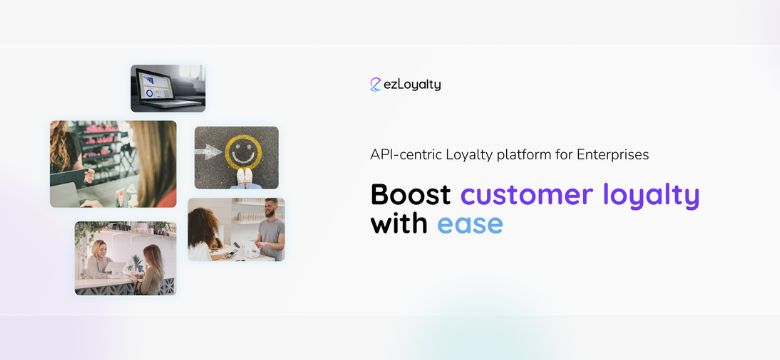








In today’s highly competitive business landscape, customer loyalty is a critical differentiator that can make or break a company’s success. Businesses strive to provide exceptional customer experiences and foster long-lasting relationships with their customers. The loyalty market, which includes strategies, programs, and technologies aimed at fostering customer loyalty, has undergone a significant transformation as a result of digital innovation.
As businesses embrace digital transformation to streamline operations, enhance customer engagement, and drive growth, the loyalty market has evolved to keep pace with these changes. The advent of digital technologies has revolutionized the way companies approach customer loyalty, enabling them to deliver personalized, seamless, and engaging experiences that resonate with modern consumers.
a) Definition
Digital transformation is the process of integrating digital technologies across all areas of a business to fundamentally change and improve operations, customer experiences, and business models. It involves leveraging technologies such as cloud computing, artificial intelligence, data analytics, and mobile applications to create new revenue streams, enhance efficiency, and drive innovation.
b) Why should businesses implement digital transformation for loyalty programs?
In the era of digital disruption, businesses must adapt and evolve to meet the changing expectations of modern consumers. Traditional loyalty programs that rely on outdated methods and manual processes are no longer sufficient to capture and retain customers. By embracing digital transformation, businesses can unlock new opportunities to enhance their loyalty initiatives, providing customers with seamless, personalized, and engaging experiences that foster long-term relationships.
Traditionally, loyalty programs revolved around physical loyalty cards, paper coupons, and in-store redemptions. While these tactics were effective in the past, they lacked personalization and failed to keep pace with the digital age. Companies often struggle to gather and analyze customer data, making it challenging to understand and anticipate their customers’ evolving needs.
With digital transformation, the loyalty market has undergone a seismic shift. Companies now leverage mobile applications, digital wallets, and data-driven platforms to create seamless, personalized loyalty experiences. Customers can easily access and redeem rewards, track their progress, and receive tailored offers and recommendations based on their preferences and behaviors. Digital channels also provide businesses with rich customer data, enabling them to continuously optimize their loyalty strategies.
Have a look at our solution: Customer Loyalty
Digital transformation has reshaped the loyalty market in numerous ways, enabling businesses to elevate their customer loyalty strategies and adapt to the evolving digital landscape:
1. Personalization: Digital technologies allow businesses to collect and analyze vast amounts of customer data, enabling them to create highly personalized loyalty programs tailored to individual preferences, behaviors, and purchase patterns.
2. Omnichannel Experiences: With the rise of mobile devices and multiple touchpoints, customers expect seamless and consistent experiences across all channels. Digital transformation empowers businesses to offer omnichannel loyalty programs that provide a cohesive experience, whether customers interact online, in-store, or through mobile apps.
3. Real-time Engagement: Digital platforms and mobile technologies enable real-time communication and engagement with customers thanks to advanced AI technologies, allowing businesses to deliver timely rewards, personalized offers, and targeted promotions based on customer behavior and preferences.
4. Data-driven Insights: Advanced data analytics capabilities provide businesses with valuable insights into customer behavior, preferences, and loyalty program performance, enabling them to make data-driven decisions and continuously optimize their loyalty initiatives.
5. Automation and Scalability: By automating various processes and leveraging cloud-based solutions, businesses can streamline the management of loyalty programs, reducing manual effort and enabling seamless scalability as their customer base grows.
Embracing digital transformation in the loyalty market offers numerous benefits for businesses, including:
1. Increased Customer Retention: Personalized and engaging loyalty programs foster stronger relationships with customers, reducing churn and encouraging repeat purchases.
2. Enhanced Customer Experiences: Digital technologies enable businesses to create seamless, omnichannel experiences that meet the evolving expectations of modern consumers.
3. Competitive Advantage: By leveraging digital transformation, businesses can gain a competitive edge by offering innovative and compelling loyalty programs that differentiate them from competitors.
4. Operational Efficiency: Automation and data-driven insights help businesses streamline operations, reduce costs, and optimize resource allocation.
5. Revenue Growth: Effective loyalty programs driven by digital transformation can drive increased customer spending, cross-selling opportunities, and ultimately, revenue growth for businesses.
See more: How Software helps business boost their loyalty programs?
The loyalty market has undergone a profound transformation due to digital innovation. Businesses that embrace digital transformation and leverage cutting-edge technologies can create personalized, seamless, and engaging loyalty programs that resonate with modern consumers. At ITC Group, we specialize in helping businesses navigate the complexities of digital transformation and develop custom software solutions tailored to their unique loyalty program needs. By leveraging our expertise, businesses can unlock the full potential of the digital loyalty market and foster long-lasting customer relationships that drive growth and success.
Stay ahead in a rapidly changing world with our monthly look at the critical challenges confronting businesses on a global scale, sent straight to your inbox.